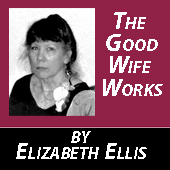 Filmmaker Byron P. Hurt (born 12/31/69) presented his documentary Soul Food Junkies at Macalester College in St. Paul during Black History Month 2013. The film was also shown at the Merriam Park Branch of the St. Paul Public Library during Black History Month, and on PBS.
Filmmaker Byron P. Hurt (born 12/31/69) presented his documentary Soul Food Junkies at Macalester College in St. Paul during Black History Month 2013. The film was also shown at the Merriam Park Branch of the St. Paul Public Library during Black History Month, and on PBS.
While attending Northeastern University, Hurt decided to discuss his concerns with his father about his father’s health and diet. That concern prompted this film.

Hurt traveled around America to discuss and discover people’s activities related to food and eating habits centering around and specifically on soul food diets. His research reached back to slaves who arrived in America by ship from Africa with okra seeds in their hair.
Food is “comfort,” Hurt said. Taste is pleasure. Soul food has traditionally been prepared and flavored to make food taste good — barbeque sauce to meat, bacon grease to collard greens, butter and milk to macaroni and cheese, sugar to sweet potato pie. Think fried chicken.
In Russia, the modifiers of sugar and salt are dubbed “white death.” Soul food is not intrinsically bad; it’s how it’s prepared that exacerbates diabetes and high blood pressure.
Food is spiritual and a labor of love. Eating is integral to get-togethers, but when asked why he didn’t include the emotion-based aspect of eating in his film — of feeding people as a form of taking care of them, of eating escapism, or eating that feels good when you’re not hungry — Hurt replied, “That footage is on the cutting room floor.”
Hurt interviewed Richard Claxton “Dick” Gregory (Born October 12, 1932, St. Louis, MO), a civil rights activist, nutritional consultant, and “drum major for justice and equality who founded a company that distributed weight loss products.” According to a Los Angeles Times headline, “Through Thick and Thin: Dick Gregory Has a Weight-Loss Plan That’s Highly Controversial, but His Faithful Clients See It as a Last, Best Hope.” (February 17, 1989, Jeannine Stein, Times staff writer)
Hurt featured activist Sonia Sanchez (born Wilsonia Benita Driver, September 9, 1934, Birmingham), who voiced her continued concern for Black folks’ civil rights, including the right and the access to healthful food. Hurt also included a film clip of First Lady Michelle Obama addressing America’s health issues.
Obesity in Minnesota was addressed by the Minnesota Community Foundation in the first of four Minnesota Idea Open competitions (Source: Community Reporter). Women’s health was the topic of Sister Spokesman in March 2013 and “Food Justice and Buying Local” on April 6 at Summit Academy, 935 Olson Memorial Hwy, Minneapolis.
Organic food may be healthy, but it’s pricey and not always available nor marketed in poor neighborhoods. Hurt believes food is sovereignty — we are what we eat — therefore, racism is tied to poverty. He believes that choices plus access to information and education should lead us to consider our food choices, diet and exercise, and that “denial and resistance” are excuses to continue unhealthy eating. Soul food is so ingrained in people’s mindset and in their diet that they are unable or unwilling to see it as harmful.
Hurt considers food justice a necessary activism and was delighted to find an underground, albeit small, network of grassroots movements toward urban gardening. Here in the Twin Cities, Metric Giles “works with Afro Eco, a group that focuses on connecting African Americans with the land.” (TC Daily Planet, by Anna Pratt)
Hurt also discussed the raising of good food on a visit to his paternal uncle, l who still lives in the South and who raises his own food in his own large garden. Hurt’s previous film is Hip Hop: Beyond Beats and Rhymes, and his next film-in-progress is on the topic of hazing.
Elizabeth Ellis is the mother of three grown children, a college graduate, a 10-year veteran of the Foreign Service and a native of the Twin Cities. She welcomes reader responses to ellisea51@hotmail.com.
Support Black local news
Help amplify Black voices by donating to the MSR. Your contribution enables critical coverage of issues affecting the community and empowers authentic storytelling.









